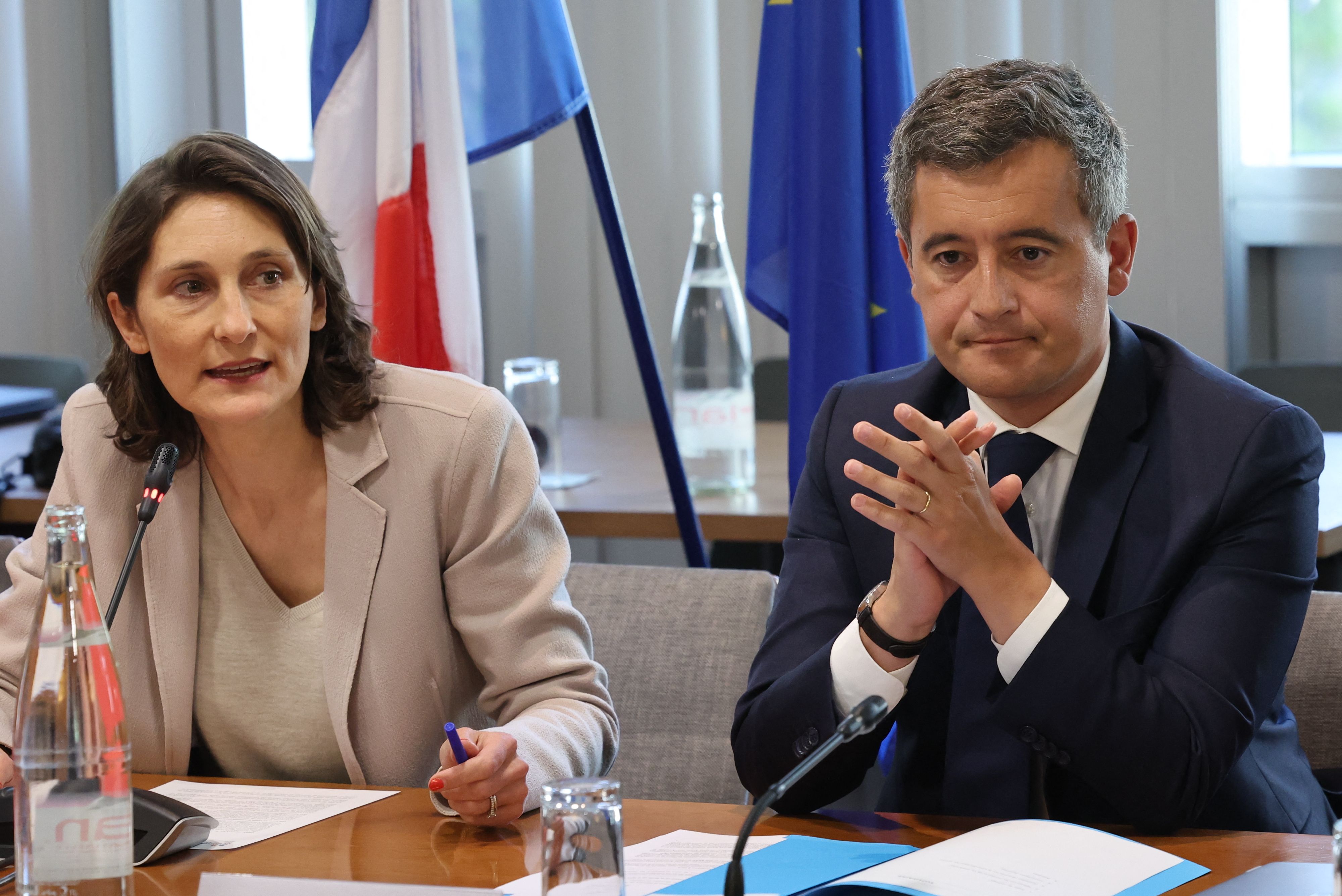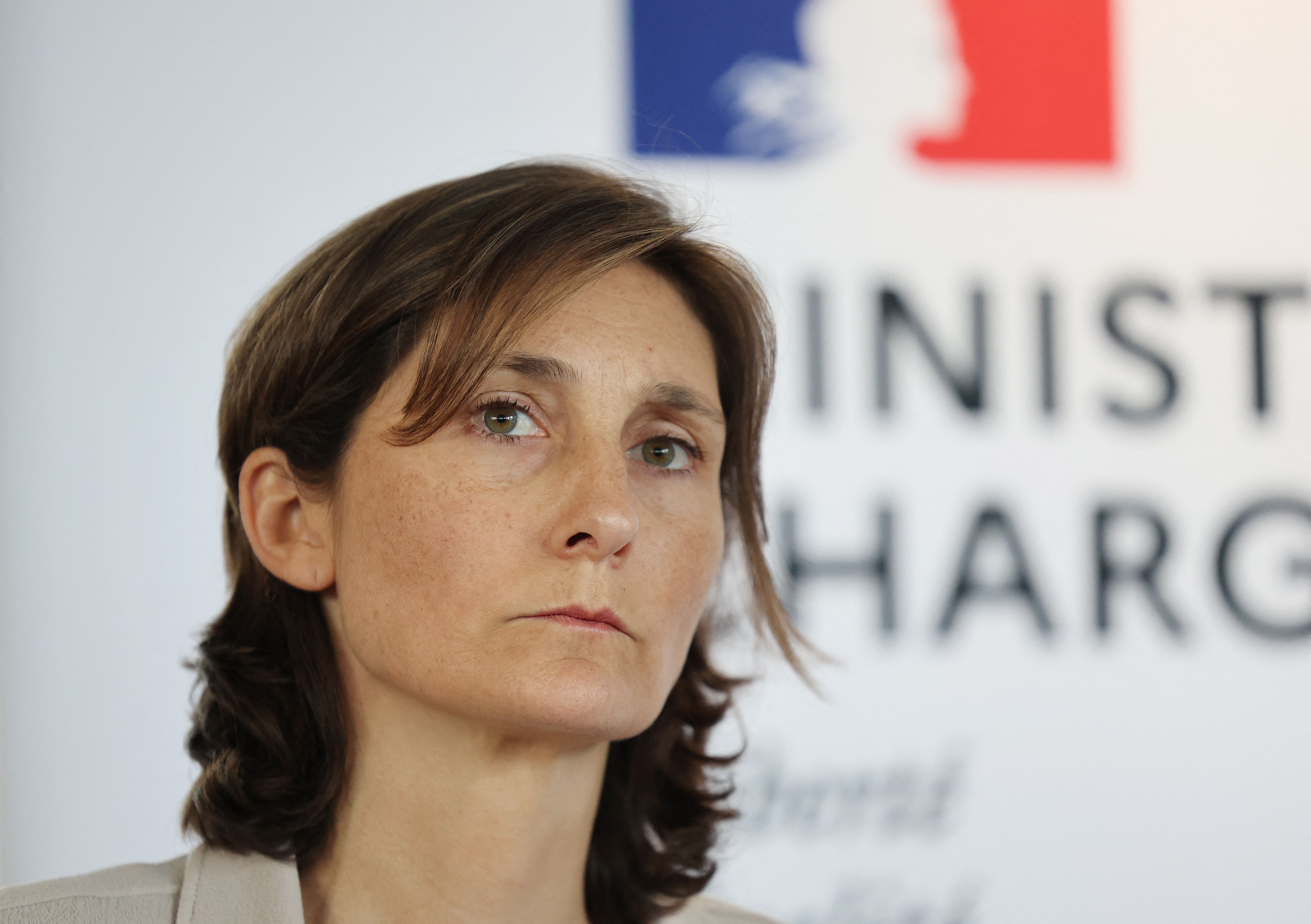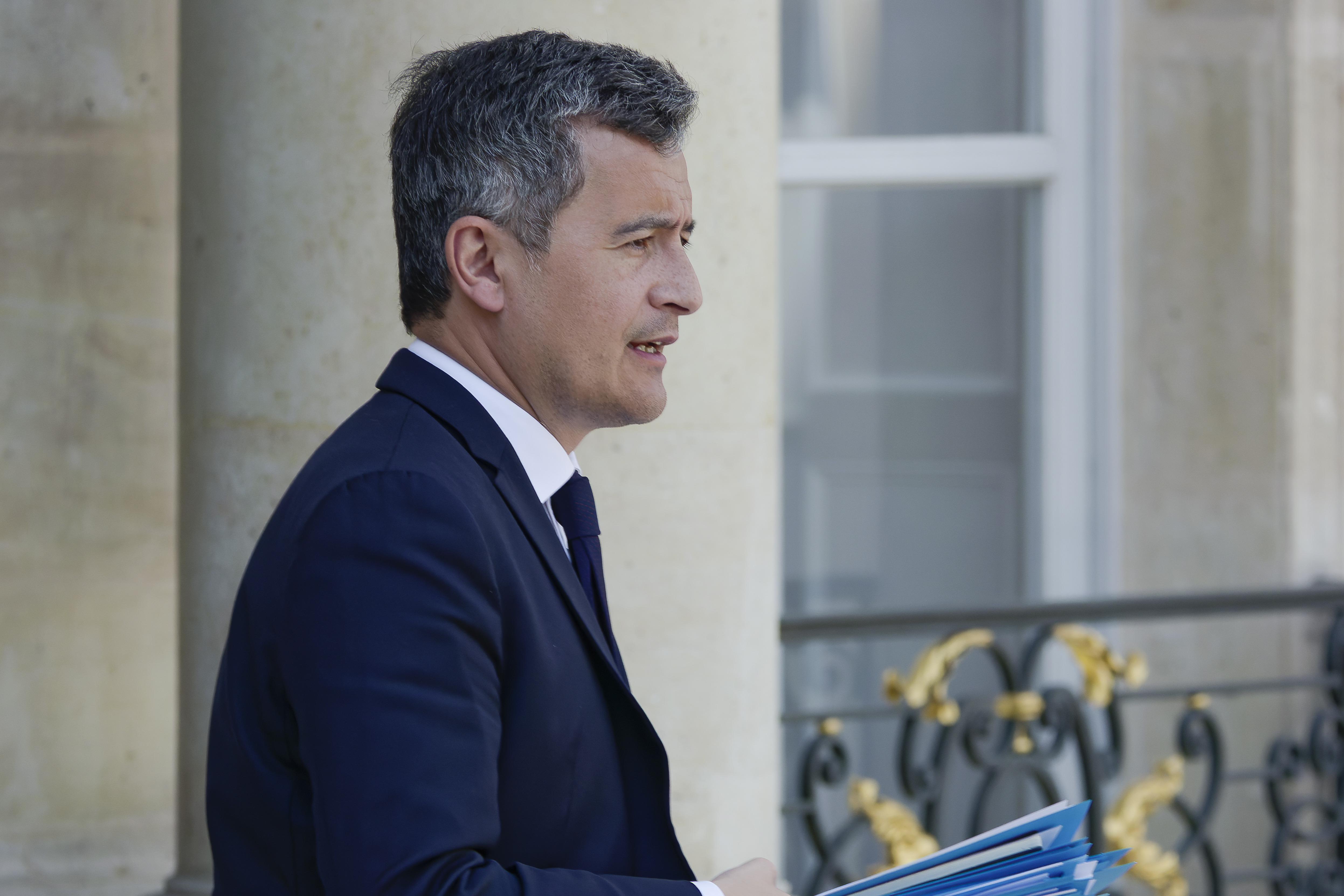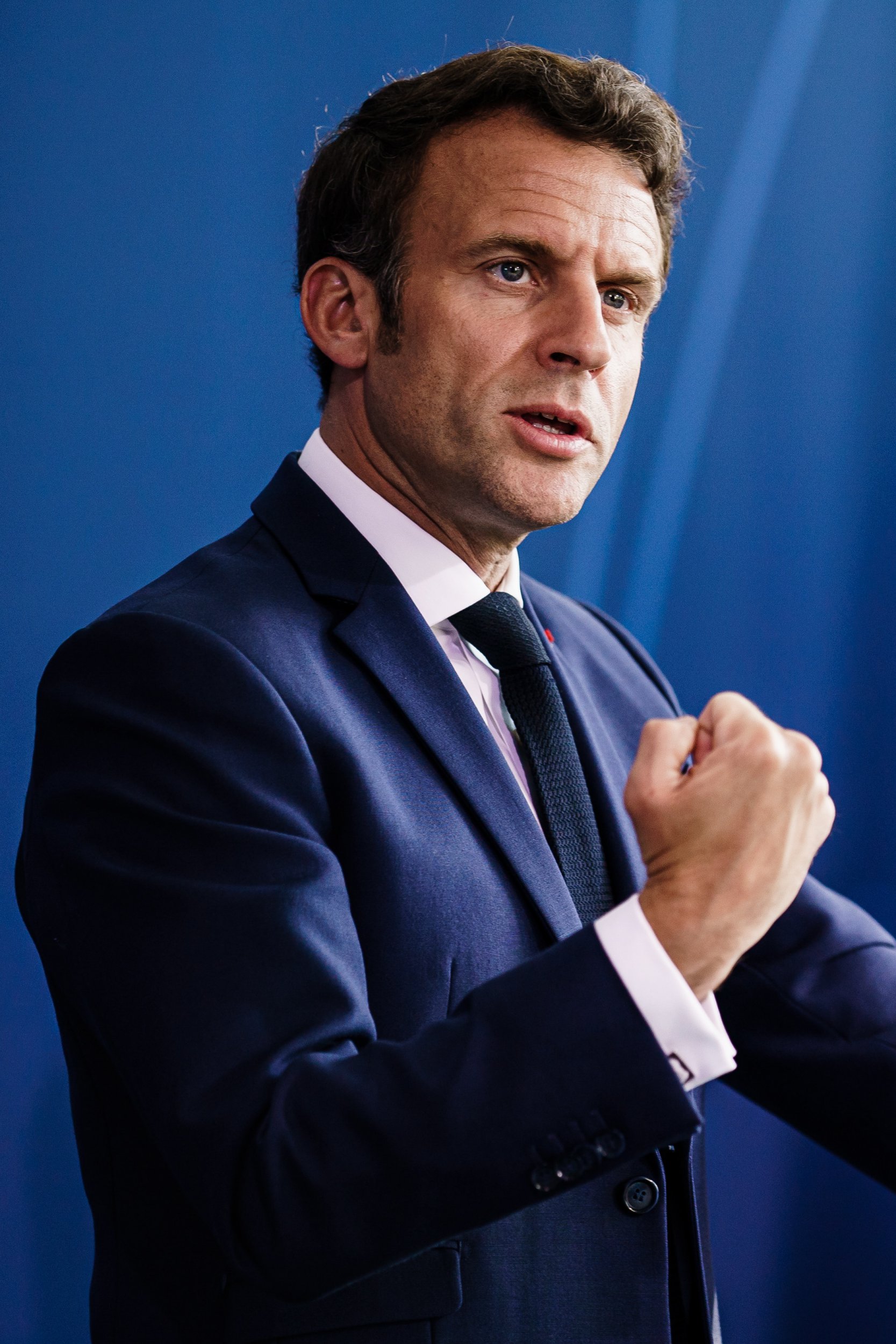
On Wednesday afternoon the French minister of the interior Gérald Darminin and sports minister Amélie Oudéa-Castéra will be questioned before the French senate about their response to the dangerous crushing and police violence which took place at the Stade de France last Saturday before the UEFA Champions League final between Liverpool and Real Madrid.
The pair have repeatedly sought to blame Liverpool fans for the chaotic scenes which occurred in St. Denis, despite mountains of video evidence proving that fans including women and children arrived on time early for the game, were held in dangerous crushes outside locked turnstiles for over two-and-a-half-hours in the run up to kick-off, and were pepper-sprayed and beaten by local military police officers.
In a press conference on Tuesday, Darmanin and Oudéa-Castéra doubled down on their blame of Liverpool fans and referred to statistics claiming up to 40,000 people with fake tickets or no ticket at all attempted to enter the stadium. Those figures were proven.
In order to understand why these mistruths are being actively spready by two senior French government figures with enormous responsibility for public safety and security, we need to consider the current political situation in France, where these two ministers have come from and why they are in their current roles, and what the response in France has been to the incident and the highly controversial and downright offensive nonsense being espoused in the days since.
Gérald Darminin
Gérald Darmanin is France’s minister of the interior. This is the French equivalent of being Home Secretary, the position currently held by Priti Patel in the United Kingdom.
Until 2017 he was a member of Les Républicains, the centre-right party of former president Nicolas Sarkozy and rough equivalent of the Conservative Party in the United Kingdom. The same year, once current president Emmanuel Macron has defected from the Socialists and declared he would start his own radical centrist political movement called En Marche!, Darmanin defected and joined the group.
With the votes of the French left divided among a string of disparate parties, Macron was subsequently president in a run-off against the fascist Marine Len Pen of the National Front, and has led France ever since.
Darmanin was chosen by Macron and prime minister Jean Castex to be minister of the interior in July 2020. Since then, Darmanin has become perhaps the most unpopular of all government ministers in France.
Darmanin has a history of opposing same-sex marriage and has voted against it in the past. The 39-year-old, born in Valenciennes in the north east of the country, has twice had formal complaints filed against him by women who allege he coerced them into sex acts using his political power.
Hundreds of women protested against Darmanin’s appointment as minister of the interior in 2020 on the streets of Paris.
Amélie Oudéa-Castéra
Amélie Oudéa-Castéra is France’s sport minister. She only became sports minister on 20 May this year, and is in part charged with overseeing the management of the 2024 Olympic and Paralympic games, which will be held in Paris.
The 44-year-old is a former professional tennis player who reached a career-high rank of 251 on the women’s tour in 1995 before retiring a year later. She qualified for the French Open at Roland Garros once in 1994, losing comprehensively in the first round.

In 2006 she married Frédéric Oudéa, the current president of the European Banking Federation and CEO of enormous French bank Société Générale. In 2016 Oudéa defended the use of offshore banking in tax havens to avoid paying tax, after the release of the Panama Papers.
Oudéa-Castéra has been a close friend of president Macron for over twenty years, and they both attended the prestigious National School of Administration in Strasbourg, which produced a majority of French presidents, prime ministers and government officials since its opening in 1945 until its closure at the end of last year.
What has been the reaction to Darmanin and Oudéa-Castéra’s mistruths?
This week, Twitter polls conducted by French news media organisation RMC have seen 94% of respondents declare that Darminin is lying about events at the Stade de France and the behaviour of Liverpool fans, while another saw 89% say that he should resign over the matter.
On Wednesday, the national newspaper Libération published a front cover with Darminin depicted with a Pinocchio-style elongated nose and a headline saying that he ‘making up his own match report.’

Oudéa-Castéra’s tweets, meanwhile, are being met with angry responses from French people who are talking about how embarrassed they are for their ministers’ actions, and the reputational damage France is taking on the international stage.
In media appearances I have made in France across the course of the week on major networks including France Info, France 4, Canal+, BFMTV, presenters and guests have nodded when I have called the claims made by ministers physically impossible and untrue. They are asking questions about the severity of the trauma some fans have suffered, and the danger of a major diplomatic incident breaking out between the United Kingdom and France.
Why would these ministers speak mistruthfully to the public?
Though Macron was re-elected for another five-year presidential term earlier this year, on 12 and 19 June, French voters will go to the polls to vote for their MPs.
Macron’s political coalition is very unstable. Because his movement is so new, its members come from different spots on the political spectrum and he had lurched increasingly rightward on social issues including policing, poverty and immigration in order to counter-act the threat of extreme right-wing politicians Le Pen and Éric Zemmour.

The 44-year-old president is by no means popular, and his current approval rating with the general public is hovering around the -13 percent mark. He was re-elected in the absence of an alternative the French population deemed credible, and was helped back into power in the second round of the presidential contest by voters of other parties who sought to vehemently oppose Le Pen, his opponent.
What that all means is that the positions of senior politicians in the French government are at risk. En Marche won an absolute majority in 2017, taking 43 percent of the vote and 308 seats. This time they are polling at only 26 percent, with the far right National front led by Le Pen breathing down their necks on 21 percent, and the leftist coalition NUPES taking the lead on 28 percent.
What the French government is doing is trying to blame a faceless mass of foreign people for its own abject failures. This is a common government tactic all around the world, every single day, and we see it in the UK habitually when migrants, refugees and asylum seekers are blamed for social issues created by those in power.
Simply put, public opinion about the carnage at the Stade de France and the fact that the police brutality, state incompetence, and mistruths of government ministers being known full well and discussed around the world presents a very real electoral danger to Macron and his colleagues.
They are now running scared of the fallout from the chaos that was brought to fans merely trying to attend a game of football.
, .
, and .
























